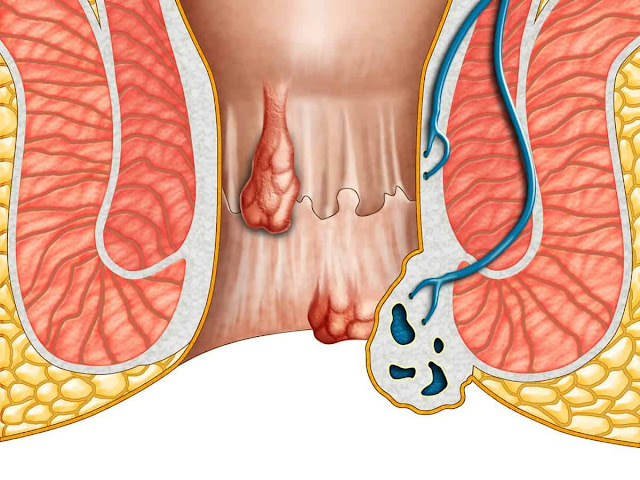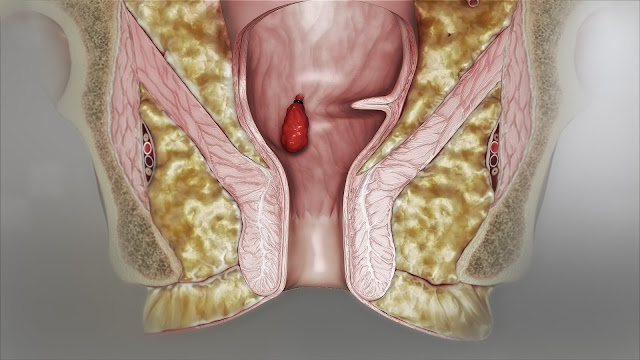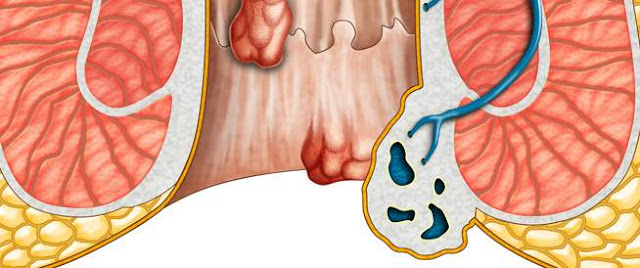Home
/
hemorrhoids
/
Causes and risk factors for hemorrhoids and methods of treatment | healthy care
Causes and risk factors for hemorrhoids and methods of treatment | healthy care
Causes and risk factors for
hemorrhoids and methods of treatment
Causes and risk factors for hemorrhoids
The veins around the anus usually tend to contract due to pressure and may swell. Bulging veins may swell due to intense pressure in the lower area of the rectum.This severe pressure can be caused by one of the following factors:
| --- | Effort during the work of the intestine
| --- | Prolonged and continuous sitting on the toilet bowl
| --- | Chronic diarrhea or chronic constipation
| --- | Overweight
| --- | Pregnancy
| --- | Having anal sex
In addition to what was mentioned, one of the causes of hemorrhoids may be the result of a genetic factor. The risk of developing hemorrhoids increases with age, as the tissues supporting the rectal and anal veins weaken and contract with age.
Complications of hemorrhoids
| --- | Throttled hemorrhoids: This occurs as a result of interruption in the supply of blood to it and suffocates.
| --- | This can lead to severe pain, and eventually tissue death (Necrosis).
Diagnosis of hemorrhoids
| --- | To diagnose internal hemorrhoids, the doctor needs to insert his finger, covered with a rubber glove, into the rectum.
| --- | Because the internal hemorrhoids are often very soft and the doctor cannot feel their presence by examining the rectum only, it is possible that | --- | The doctor examines the lower part of the intestine and rectum with an anoscope, an arthroscope (Proctoscope) or an x-ray (Sigmoidoscope).
| --- | These endoscopes are soft and luminous tubes, which allow the doctor to look into the anus and rectum.
| --- | Sometimes, for diagnosis, more extensive and comprehensive examinations of all parts of the intestine may be required by colonoscope.
Reasons for colon exams
| --- | Symptoms and signs indicate the presence of another disease in the digestive system (Digestive System)| --- | High probability of a person being screened to develop large bowel cancer (colon cancer)
| --- | The person being examined is over the age of fifty and has not had a colonoscopy in the last ten years.
Methods of treating hemorrhoids
Many people have painful hemorrhoids, so in the following video, we provide you with the most effective and effective home and natural remedies to treat hemorrhoids. Fortunately, there are many effective ways to treat the disease. Hemorrhoids treatment is divided into several types as follows:
| --- | pharmaceutical
If your hemorrhoids only cause discomfort, your doctor may prescribe some over-the-counter medications such as creams, ointments, or suppositories. These medications contain substances like Hydrocortisone and Lidocaine that relieve pain and itching, even if only temporarily.
Warning: Do not use the cream that contains steroids and is sold without a prescription for more than a week, unless the doctor advises you to do so, as doing so will cause thinning of the skin in the area.
| --- | Eradication
If you have external hemorrhoids causing painful thrombosis, the doctor will most likely get rid of this thrombosis by creating an incision to drain the thrombus, known as excision thrombosis.
This process is highly effective if applied within the 72 hours following the formation of thrombus in the area.




















No comments